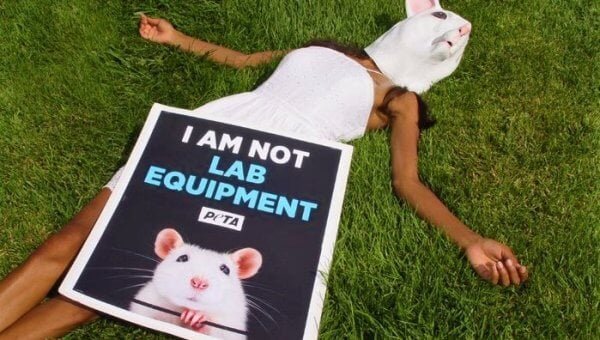In a groundbreaking shift for medical research ethics, the National Institute of General Medical Sciences (NIGMS) has announced the cessation of funding for the most common sepsis experiments conducted on animals. This decision, spurred by persistent advocacy from organizations like PETA (People for the Ethical Treatment of Animals), marks a critical turning point in the pursuit of more humane and effective research practices.
Sepsis, a life-threatening condition triggered by the body’s extreme response to infection, has long been studied using animal models that often fail to accurately reflect human responses. These experiments typically involve subjecting animals to painful procedures such as injection of toxins, puncturing intestines, or introducing harmful bacteria, resulting in severe suffering and eventual death. Despite decades of funding and research, these methods have proven largely ineffective in advancing human treatment options for sepsis.
PETA, alongside advocates and medical professionals, has persistently highlighted the ethical and scientific flaws of using animals in sepsis research. Through campaigns, legal challenges, and public demonstrations, PETA underscored that such experiments are not only cruel but also scientifically unsound, given the profound biological differences between species in responding to septic conditions.
The pivotal announcement came during the Shock Society’s Annual Conference, where NIGMS affirmed its decision to redirect resources toward human-relevant research methodologies. These approaches include utilizing human cells, specimens, and data sets, which offer more accurate insights into sepsis mechanisms and potential treatments.
The shift in policy reflects a growing acknowledgment within the scientific community that animal models are inadequate substitutes for studying human diseases like sepsis. Notably, the National Institutes of Health (NIH) had previously acknowledged the limitations of animal models in sepsis research dating back to 2013, citing instances where treatments successful in animals failed in human clinical trials.
PETA’s efforts culminated in a landmark lawsuit against NIH in 2021, challenging the agency’s funding of sepsis experiments on animals despite overwhelming evidence of their ineffectiveness and cruelty. This legal action underscored NIH’s legal obligations to prioritize research methods that minimize animal suffering while enhancing human health outcomes.
As advocates celebrate this pivotal decision, they continue to urge NIH and other agencies to discontinue funding for all cruel and futile sepsis experiments on animals. This call to action emphasizes the need for ethical and scientifically rigorous approaches that align with modern medical research standards.
To support this cause and urge further reforms, individuals are encouraged to voice their concerns directly to NIH, urging continued progress towards humane and effective research practices in the pursuit of treatments for sepsis and other critical health challenges.


